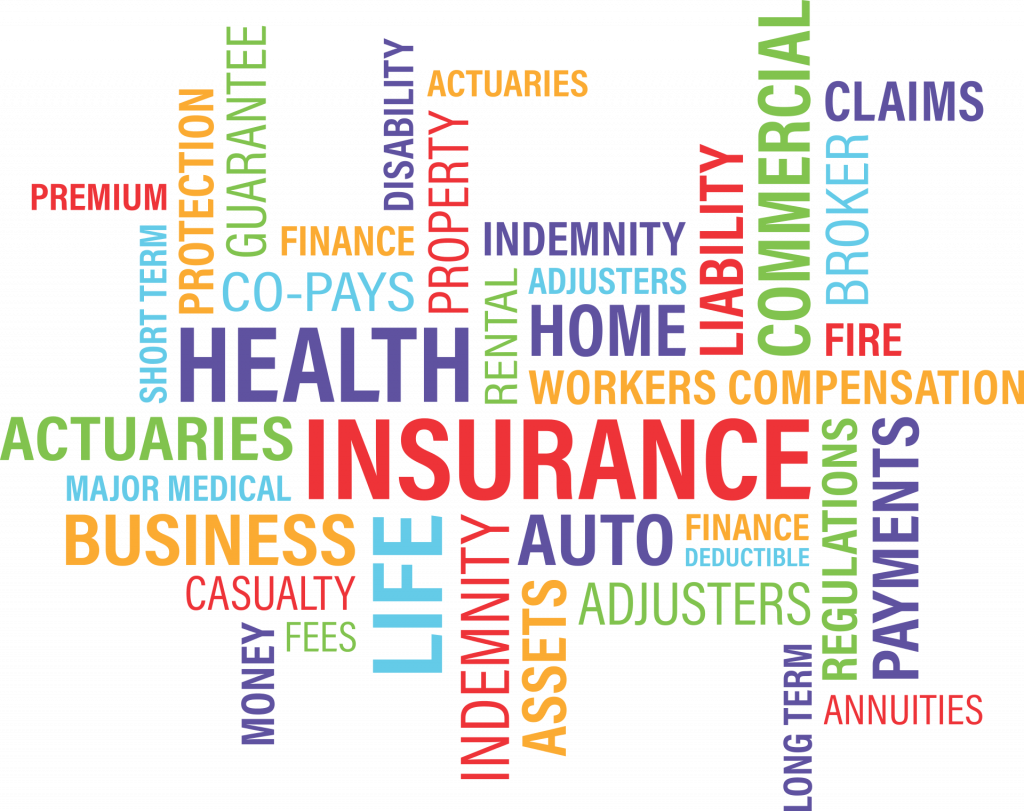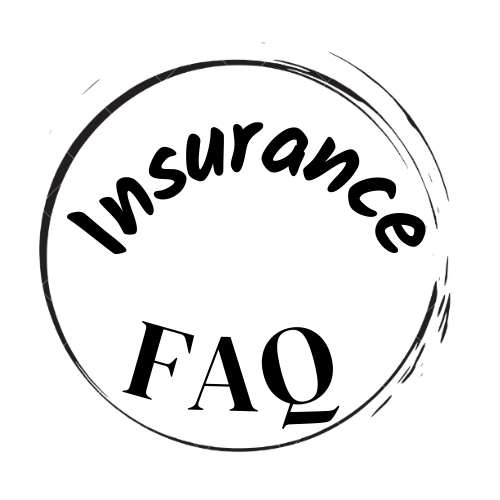
Welcome to Insurance FAQ, where we answer the popular and relevant questions about insurance, including questions about Life Insurance, Homeowners Insurance, Car/Auto Insurance, Health Insurance, Travel Insurance, and Business Insurance.
What is Insurance?
Insurance is a financial product that helps to protect individuals and businesses from potential financial losses due to unforeseen events, such as accidents, natural disasters, or illnesses. There are many different types of insurance available, including life insurance, health insurance, car insurance, homeowners insurance, and business insurance. When you purchase an insurance policy, you pay premiums to the insurance carrier in exchange for protection against specific risks. In the event that you experience a covered loss, the insurance carrier will provide financial compensation to help you recover from the loss. Insurance can help to provide peace of mind and financial security, allowing individuals and businesses to protect themselves against unexpected expenses and disruptions. It is important to carefully consider your needs and budget when shopping for insurance and to work with an insurance agent or financial advisor to help you make an informed decision.
Our most recent frequently asked questions are shown in the table below.
Or jump down to continue reading about Insurance.
Home Owner FAQ
Insurance Overview
Picture this, disaster strikes, say, a fire, legal action, theft, or an automobile accident. In this case, you will need assistance recovering losses through a financial safety net. The safety net in this scenario is the purpose of Insurance.
What Types of Insurance are There?
There are two classes of Insurance; Individual Insurance and Business Insurance. Some individual types of Insurance that you may or may not already know include;
Automobile Insurance:
The most popular form of Insurance is auto insurance. All states mandate that automobile insurance coverage be at least minimal. The standard auto insurance policy includes liability protection for personal harm and damage to property, costs incurred in treatment, automobile damage to or its loss, and legal expenses regarding litigation.
Life Insurance:
When you pass away, life insurance caters financially to your loved ones, including designated legatees. There are two main types of Insurance: term insurance, which only offers protection for the duration of the policy and only pays out upon the death of the insured; and whole life insurance, which offers both Insurance and savings and permits the insured to make withdrawals before passing away.
Health Insurance:
The expense of hospitalization, medical visits, and prescription medications are all covered by health insurance. Many businesses offer the most practical insurance plans that pay 100% of hospital expenses and 80% of prescription drug and physician services.
Disability Insurance:
If an employee is not able to work due to sickness or an injury, this policy will pay a percentage of the individual’s wages (or a predetermined amount) each week or each month. Longer waiting periods before payments are due to result in cheaper premiums: Insurance that starts paying an injured employee after a month may be two times as expensive compared to one that delays payout by six months.
Homeowners Insurance:
Insurance coverage covers losses/damages brought on by specified risks such as fire, theft, and others. Any policy does not typically cover all risks. The homeowner must evaluate his demands by considering the potential dangers in his neighborhood, such as earthquakes, hailstorms, flooding, and other calamities. In cases where a policy on a property does not amount to replacement costs of at least 80%, homeowner’s policies limit the amount of coverage that will be provided. The owner must either purchase a rider that automatically compensates for inflation or increase the policy limits yearly if there is inflation. Owners of residential or commercial properties may save by reducing the insured amount of their insurance policies in cases where property values have fallen significantly.
Other Liability Insurance:
A person can be sued in today’s litigious society for pretty much anything, even a slip-and-fall on the sidewalk, an irately said short phrase, and a baseball field mishap. Under this policy, the personal liability policy covers all the risks experienced. The coverage here tends to exceed that of house and auto insurance policies. Usually costing around
$250 per year for $1 million in liability, this umbrella insurance is not prohibitively expensive.
Business Insurance:
When it comes to Business insurance, the types vary based on the type of business, and some bear similarities to individual Insurance. They include;
Workers’ Compensation:
According to the International Labor Organization (ILO), globally, there are approximately more than 300 million work-related injuries and about 160 million casualties of occupational sicknesses per year. Crazy right? Bearing this statistic in mind, businesses must carry workers’ compensation insurance in practically all states. A few individuals can accomplish this through privately insuring themselves, which entails keeping aside money to counter the eventuality. In most cases, smaller companies provide this type of Insurance, which private groups provide, public sources, and other professional groups.
Commercial Vehicle Insurance:
Similar to individual Insurance, companies that use automobiles are required to keep a bare minimum of auto insurance coverage that covers general liability, bodily injury, and property damage.
Malpractice Insurance:
To prevent litigation by angry patients or clients, professionals like doctors, attorneys, and accountants frequently obtain malpractice insurance. During the previous thirty years, the price of such Insurance has increased for doctors, partly due to more outstanding jury verdicts against doctors who conduct their profession negligently.
Business Interruption Insurance:
When it comes to this type of Insurance, an organization buys a policy that covers any possible loss in the employees’ earnings in case there is an interruption in the company’s operations. Such cases include; loss of power, shortage in supply materials, or strike among the workers. This coverage depends on the size of the organization and the susceptibility to any financial harm caused by the loss of business assets or any other property owned by the company.
Property Insurance:
If you dream of owning a business, this is for you. As a business owner, you can’t afford to leave any aspect of your business exposed. Buildings, inventory, permanent fixtures, or any similar goods vital to the company need reliable coverage. Property insurance, therefore, is vital to you as a business owner.
Liability Insurance:
Companies may encounter a number of risks, which may result in a serious adverse effect on productivity. There is a variety of Insurance, including those for landlords, tenants, and homeowners, landlords, and tenants (blanketing losses incurred on all the buildings); for manufacturers and contractors (blanketing losses incurred on buildings); for a business product (covering liability resulting from warranties on products or injuries caused by products); for contractors (cushioning losses caused by private contractors engaged by the insured); and a host of others (for failure to go by the rules outlined by contracts).
Who needs Insurance, you may be wondering?
Well, if your goal is to minimize monetary uncertainties and avoid unintentional loss, then you must get Insurance. You achieve this by meeting a reliable insurance company, trading your assumption of potential risks, and promising payment of a sizable amount of money to that company. This amount is commonly known as a predefined fee, the Insurance.
There is no specific time or age to get Insurance. You can get it anytime; however, if you own property such as a car or a business, there is no more fantastic time than now.
There are a couple of places where you can buy Insurance, such as; Directly from the provider, via a broker, or from a fin-tech startup. All three options bear their pros and cons and address a specific demographic. For instance, buying Insurance directly allows you to scan the market on your own time and get what best suits you at your budget.
The biggest downside to these criteria is the time you will spend finding what works best for you. In the case of a broker, you save time and get the best deal based on your specifications and overall peace of mind. There is no downside to buying from a broker since they work for the Insurance.
In some cases, however, you might pay more. The last option to consider is fin-tech. This option provides myriad advantages starting with its easy-to-use feature, diversification of products, cost-effectiveness, data security, etc. In the same way, we are different; our preferences are different. That said, I’ll leave that to you to decide.
The most asked question by individuals seeking coverage is, why do I need Insurance? To answer this question, you will need to know that:
- Insurance policies are crucial in helping financial balance loss in families. Such loss happens when a family encounters the untimely death of their breadwinner.
- Insurance plans can also be helpful when settling medical care, hospitalization or treatment of any illness. The insured’s family can also use the policy to settle debts accrued in life by the individual, such as home loans.
- Insurance coverage is essential to a family in maintaining their living standard in case the insured dies in the future. Will your family maintain their standard of living, or will they succumb to poverty and be the town’s laughingstock? I am sure you don’t want to imagine that. The insurance company gives a lump-sum payout for bills in case of death or medical emergency.
- Insurance plans, in most cases, include investing and savings options. The best plan one can have is essential protection. This plan provides additional support to wealth and monetary savings.
- Insurance can help in securing your home if any unforeseeable catastrophe occurs. Your house insurance policy allows you to acquire reliable coverage for property damage. The policy caters to the cost of rebuilding or repairs. You can also choose to use the money to purchase replacement items.

